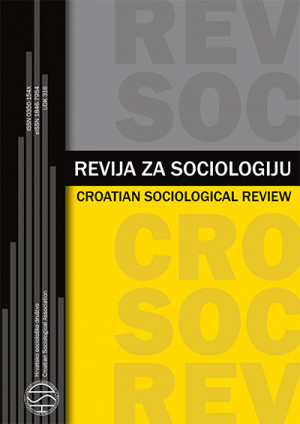Europa izvan Europske unije? Nove dileme pri definiranju europskog identiteta
Europe Outside the European Union? New Dilemmas in Defining European Identity
Author(s): Dejan JovićSubject(s): EU-Approach / EU-Accession / EU-Development, Politics and Identity
Published by: Hrvatsko sociološko društvo
Keywords: Europe; identity; European Union; Europeanisation; EU Enlargement; Western Balkans;
Summary/Abstract: Following the decision of the United Kingdom to leave the European Union and in the light of the slowing down of the EU enlargement in the Western Balkans and Turkey, a new phrase emerged in the European political vocabulary – Europe outside the European Union. This phrase, promoted by British foreign policy designers, brings the issue of the European identity back on the agenda. Who, what, when and where is Europe, and who are the Others in relation to Europe? In this article, we analyse the complex and mutually divergent replies to the question of the European identity by using a constructivist approach, based on the definitions of the European Self and Other. Despite proclaiming an ambition to unite and emancipate itself from the Others, Europe remained connected to the United States after the Cold War through the concept of Euro Atlanticism. The competing concept of Eurasia – marking a link between Europe and Russia – is also becoming popular in the areas of European inner and external peripheries. Contemporary Europe is far from being “united in diversities” – it looks more like an onion instead with its core countries, internal and external peripheries and influential external stakeholders that are semi-detached to it for historical and strategic reasons. The author therefore puts forward a question of whether it is at all possible to define Europe as the Other to its neighbours and other external stakeholders such as Russia, the US and Turkey. Would it not be more appropriate to define Europe through a permanent notion of being in-between its own Others, rather than through its own clearly marked and defined Self?
Journal: Revija za sociologiju
- Issue Year: 48/2018
- Issue No: 3
- Page Range: 359-394
- Page Count: 36
- Language: Croatian

